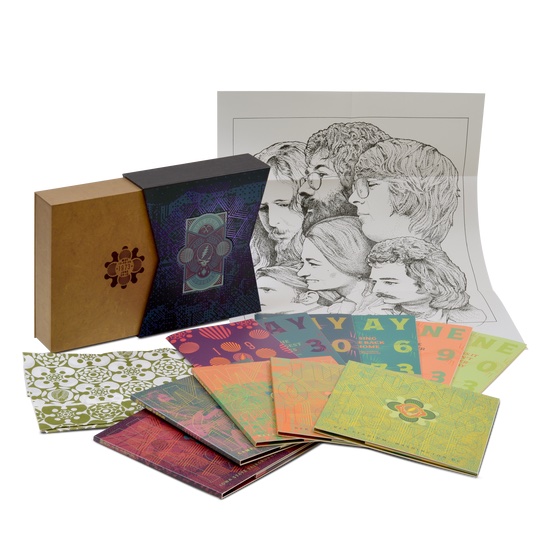The Grateful Dead released three multi-disc concert LPs between 1969 and 1972 (Live/Dead, Grateful Dead, and Europe ’72), which seemed like a lot at the time. Today, though, those LPs represent just a tiny fraction of the group’s live-show discography. The Dead, which performed regularly for decades and appears to have recorded virtually every note, has since issued close to a hundred concert box sets and albums. Moreover, that’s not including the live material on 36 CDs in a series called Dick’s Picks, nearly 50 in a series dubbed Dave’s Picks, and well over a dozen in a series called Road Trips. There’s also a digital download series that embraces around 15 additional releases.
Isn’t that enough live Dead for anyone? Apparently not, because the group just released the 17-disc Here Comes Sunshine 1973, and it sold out almost immediately in a 10,000-copy limited edition. Downloads are still available via the band’s website, however.
Despite the plethora of other live Dead releases, the demand for this one seems understandable. Though the group had just lost co-founder Ron “Pigpen” McKernan, who died in March 1973, remaining members Jerry Garcia, Bob Weir, Bill Kreutzmann, Phil Lesh, and Keith and Donna Godchaux were arguably at an artistic peak in May and June of that year when they delivered these previously unreleased shows. Moreover, the sound in this box is pristine, thanks to excellent recording work by Dead sound wizard Owsley Stanley as well as tape restoration and speed correction for this release.
The concerts, which range in length from nearly four to almost five hours, took place in Washington, D.C. (two shows); Des Moines, Iowa; and San Francisco and Santa Barbara, California. They include extended – and often spectacular – improvisation on dozens of songs (one of which is simply called “Jam”). Like their friend Bob Dylan, the Dead’s members rarely played a number the same way twice. And like Bruce Springsteen, they eschewed firm setlists, preferring to mix things up at every gig. Many songs do appear four or five times in this box, but others pop up only once or twice. All in all, the shows embrace 50 compositions.
The concerts – which have a total playing time of 20 hours – do a fine job of showcasing all sides of the Dead’s musical personality. From the Garcia/Robert Hunter songbook come such gems as “Stella Blue,” “Eyes of the World,” and “Mississippi Half-Step Uptown Toodeloo,” all of which would appear on October 1973’s Wake of the Flood, the group’s sixth studio album; and “China Doll” and “Loose Lucy,” which would show up the following June on From the Mars Hotel along with “U.S. Blues,” a rewrite of this box set’s “Wave That Flag.”
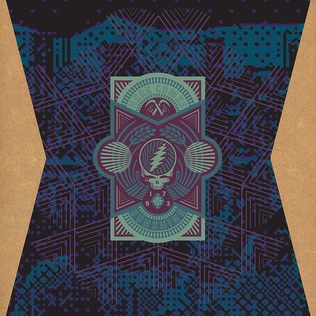
Also here are such classics as Garcia and Hunter’s “Casey Jones” and “Bertha”; several nods to early rock, including Chuck Berry’s “Johnny B. Goode,” “Promised Land,” and “Around and Around”; and examples of the Dead’s penchant for country, such as Marty Robbins’s “El Paso,” George Jones’s “The Race Is On,” and Johnny Cash’s “Big River.” Among other standouts are Hunter and Lesh’s “Box of Rain”; John Phillips’s “Me and My Uncle”; Tim Rose and Bonnie Dobson’s “Morning Dew”; and five long, exhilarating versions of “Playin’ in the Band,” the Dead concert favorite penned by Hunter, Weir, and Hart.
If you’re on a limited budget, the good news is that the band’s June 10 Washington show is being made available separately as a four-CD set. Running nearly five hours, it is loaded with highlights, including a spectacular reading of the group’s jazzy, psychedelic guitar extravaganza, “Dark Star,” and an eight-track final set that features Dickey Betts and Butch Trucks of the Allman Brothers, who were co-headlining. Included in that last set is a 20-minute Garcia showcase that sandwiches a drum solo between the two elements of a favorite Dead medley: “Goin’ Down the Road Feelin’ Bad” and Buddy Holly’s “Not Fade Away.”
Such numbers help to make the June 10 show the best of the lot, but not by much. If you love the band and can spare the bucks, you really ought to experience the music from all five shows on Here Comes Sunshine 1973.
Also Noteworthy
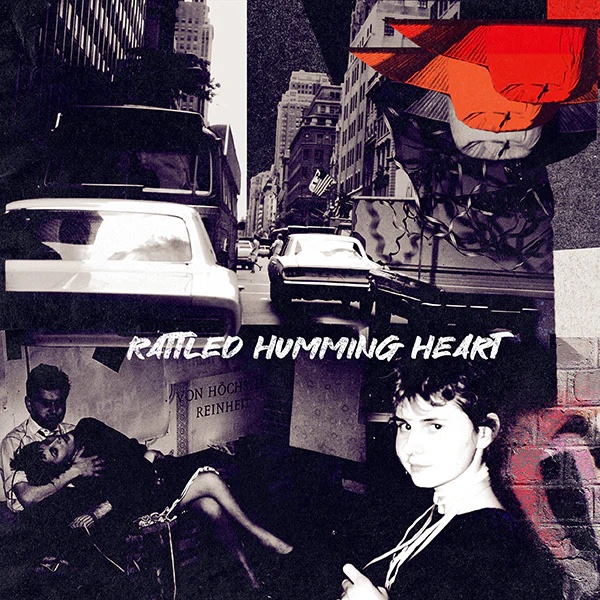
The Midnight Callers, Rattled Humming Heart. Power pop doesn’t get any more compelling than the music you’ll find on this sophomore album from the New York–based Midnight Callers. Like labelmate the Anderson Council, the quartet sometimes sounds a bit like the Raspberries. It’s also redolent of the Knack, and you can sometimes hear the influence of the Beatles. There’s not a weak track on the entirely self-penned, high-energy Rattled Humming Heart, which showcases surprise-filled arrangements and thrilling vocal, guitar, and percussion work. The lilting “Maggie,” the sole ballad, is gorgeous, and rockers like “Girl on the Run” and “Little Runaround” will likely have you up and dancing.
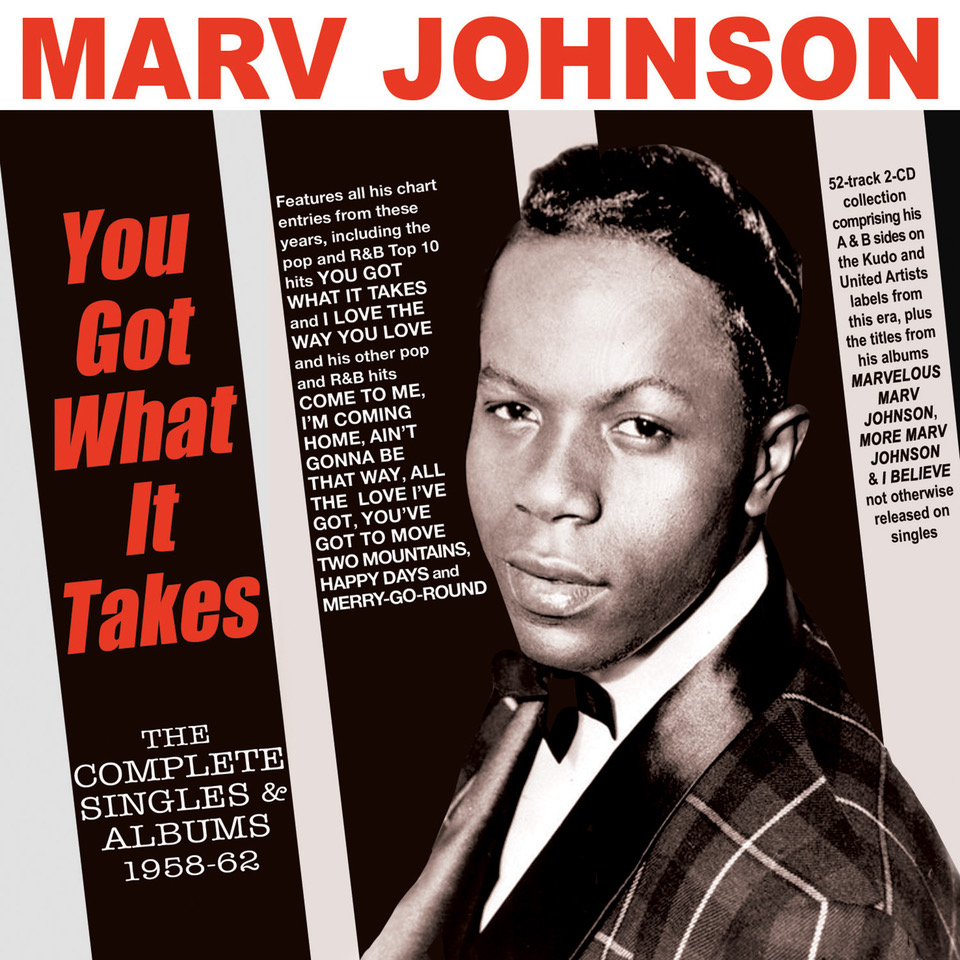
Marv Johnson, You Got What It Takes: The Complete Singles & Albums 1958–62. If you know Marv Johnson’s name, you most likely associate it with his million-selling single from 1959, “You Got What It Takes,” which has received regular airplay over the years on oldies stations. But as this two-disc, 52-track anthology makes clear, the late singer was far from a one-hit wonder, especially beyond America’s shores. Johnson – who had the distinction of recording the first single issued by Berry Gordy’s first music label, Tamla – had another Top 10 U.S. hit with “I Love the Way You Love” and scored several other lesser hits in the States, all written or co-written by Gordy. Moreover, he enjoyed commercial success internationally, including three No. 1s in Australia, and wrote songs for other artists. Though it doesn’t embrace his later work for the Motown and United Artists labels, this collection does feature all Johnson’s hits, including his early doo-wop-influenced material and dozens of Tamla recordings that should appeal to fans of contemporaneous tracks by artists like Marvin Gaye and Smokey Robinson.
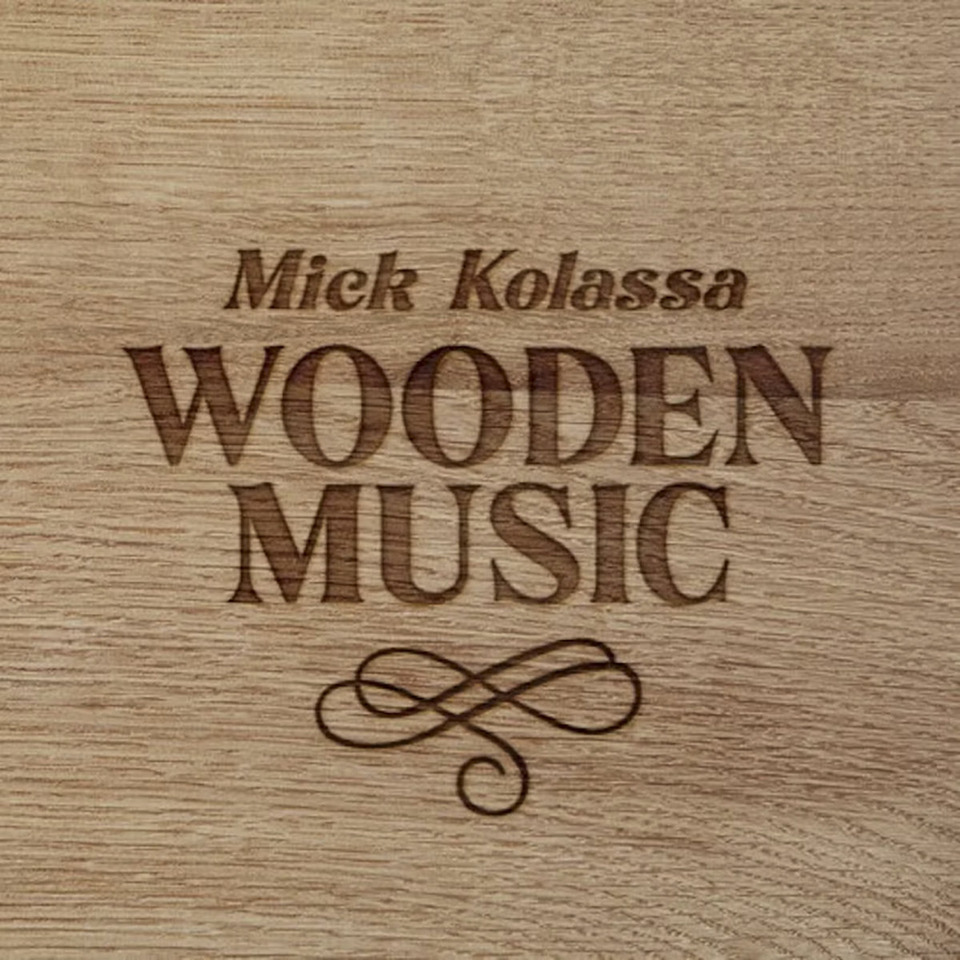
Mick Kolassa, Wooden Music. This latest album from veteran blues singer, songwriter, and guitarist Mick Kolassa features only acoustic instruments, hence the title. The record delivers a version of Guy Clark’s “Baby Took a Limo to Memphis,” a song that namechecks Kolassa’s hometown, plus 10 of his own witty and winning compositions. (In one, for example, he laments that while he used to be able to party all night, “now the second toke pretty much puts me under / Gotta confess, I’m a one-hit wonder.” Kolassa – whose gritty vocals sometimes recall Dr. John – garners support from such artists as Jim Jensen, who produced and plays guitar throughout; Bob Corritore, who adds harp on one number; and blues singer Libby Rae Watson, who contributes vocals to the Clark cover. Incidentally, Kolassa calls his albums a labor of love, and he backs that claim by donating 100 percent of their net proceeds to the Blues Foundation.
Jeff Burger’s website, byjeffburger.com, contains five decades’ worth of music reviews, interviews, and commentary. His books include Dylan on Dylan: Interviews and Encounters, Lennon on Lennon: Conversations with John Lennon, Leonard Cohen on Leonard Cohen: Interviews and Encounters, and Springsteen on Springsteen: Interviews, Speeches, and Encounters.


